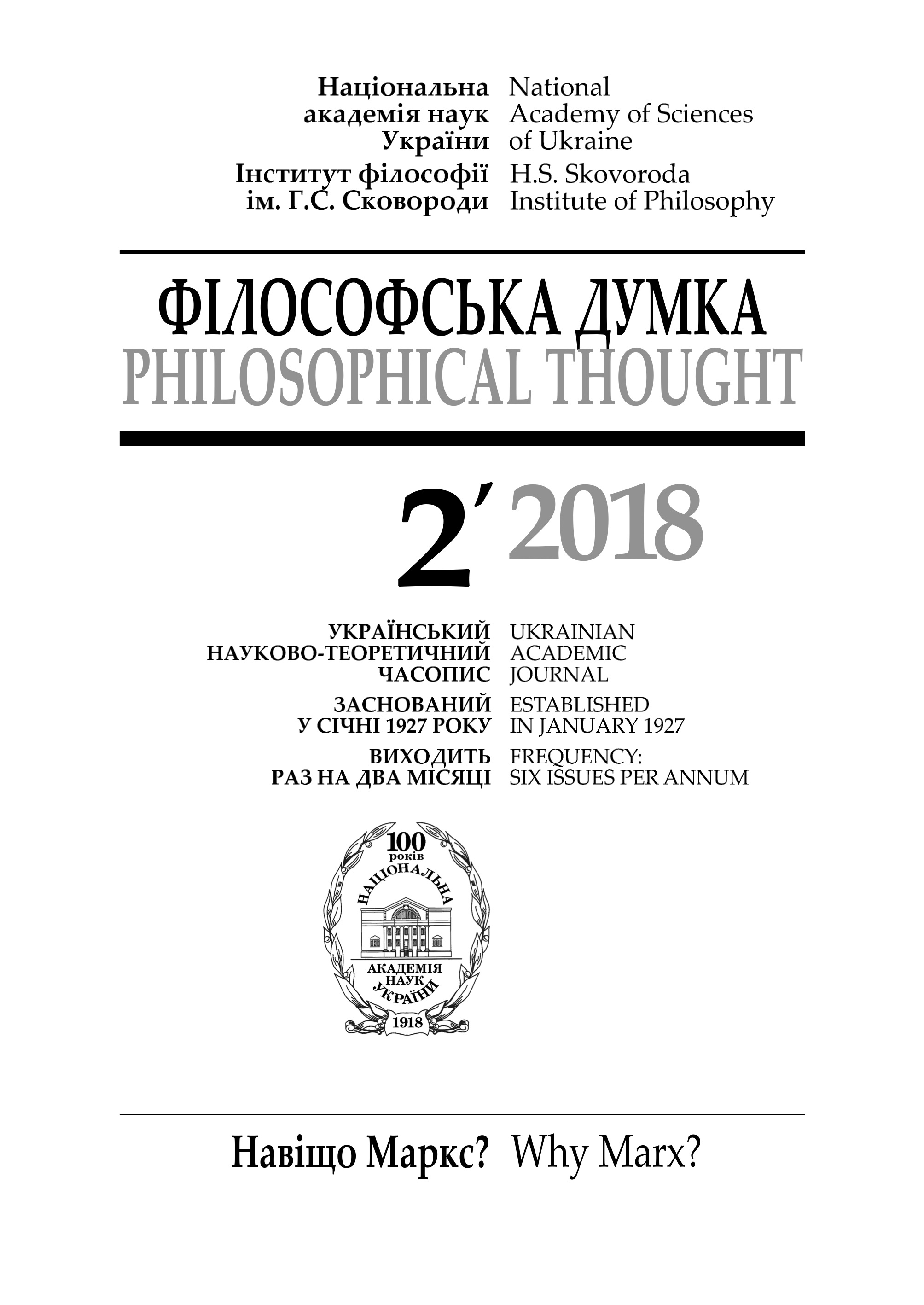John Maynard Keynes as Economist and Philosopher
Keywords:
John Maynard Keynes, macroeconomics, economic theory, uncertainty and expectations, probability, moral philosophy; methodologyAbstract
The article is a preface to the publication of the Ukrainian translation of the last chapter of the work “The General Theory of Employment, Interest and Money” by the great British economist John Maynard Keynes. The author describes the main economic ideas of one of the most influential economists of the 20th century — a theorist who sought the fundamental laws governing the capitalist economy and the designer of economic policies. Moreover, Keynes was also a philosopher. The article deals with how Keynes’s work in philosophy influenced his work in economics.
References
Aero, G., Sheller, R. (2009). Animal Spirits: How Human Psychology Drives the Economy, and
Why It Matters for Global Capitalism. Princeton, New Jersey: Princeton University Press.
Bateman, B. (2010). The return to Keynes. Íàrvard: Harvard University Press.
Backhouse, R., Bateman, B. (2011) Capitalist Revolutionary: John Maynard Keynes. S.l.: Harvard University Press.
Harrold, R. (1951). The life of John Maynard Keynes. London: Macmillan.
Davidson, Ð. (2007). John Maynard Keynes. Great Thinkers in Economics Series. Basingstoke, England: Palgrave Macmillan.
Friedman, M. (1953). Essays in Positive Economics. Chicago: University of Chicago Press.
Marshall, A (1925). The Present Position of Economics. In: Memorials of Alfred Marshall, ed. by A.C. Pigou. London: Macmillan.
Keynes, J.M. (1971—1989). The Collected Writings of John Maynard Keynes (cited as JMK with volume number), managing editors Sir Austin Robinson and Donald Moggridge. 30 vols. London: Macmillan.
Keynås, J.M. (1939). Professor Tinbergån’s Method. In: The Economic Journal, vol. 49, 195, p. 558—570.
Krugman, P. (2014). The Euthanasia of the Rentier. January 22. Retreived from: https://krugman.blogs.nytimes.com/2014/01/22/theeuthanasiaoftherentier/.
Moggridge, D.E. (1992). Maynard Keynes. An economist’s biography. London, New York: Routledge.
O’Donnell (1989). Keynes: Philosophy, Economics and Politics: The Philosophical Foundations of Keynes’s Thought and their Influence on his Economics and Politics. New York: Palgrave Macmillan.
Pigou, A.C. (1936). Mr. J.M. Keynes’ General Theory of Employment, Interest and Money. In: Economica, vol.3 (10), p. 115—132.
Robbins, L. (1935). An Essay on the Nature and Significance of Economic Science. London: Macmillan & Co.
Russel, B. (1922). Review: A Treatise on Probability. By John Maynard Keynes. In: Mathematical Gazette. Mathematical Association, vol.32 (300). p. 152 — 159.
Russell, B. (1967). The Autobiography of Bertrand Russell I872—I9I4, vol. 1. S.l.: Allen & Un win.
Skidelsky, R (2009). Keynes: The Return of the Master. London: Allen Lane.
Skidelsky, R. (1983). John Maynard Keynes. New York: Palgrave Macmillan, vol. 1.
Skidelsky, R. (1992). John Maynard Keynes. New York: Palgrave Macmillan, vol. 2.
Skidelsky, R. (2001). John Maynard Keynes. New York: Palgrave Macmillan, vol. 3.
Downloads
-
PDF (Українська)
Downloads: 4048
Published
How to Cite
Issue
Section
License
Authors who publish with this journal agree to the following terms:
- Authors retain copyright and grant the journal right of first publication.
- Authors are able to enter into separate, additional contractual arrangements for the non-exclusive distribution of the journal's published version of the work (e.g., post it to an institutional repository or publish it in a book), with an acknowledgement of its initial publication in this journal.
- Authors are permitted and encouraged to post their work online (e.g., in institutional repositories or on their website) prior to and during the submission process, as it can lead to productive exchanges, as well as earlier and greater citation of published work (See The Effect of Open Access).


